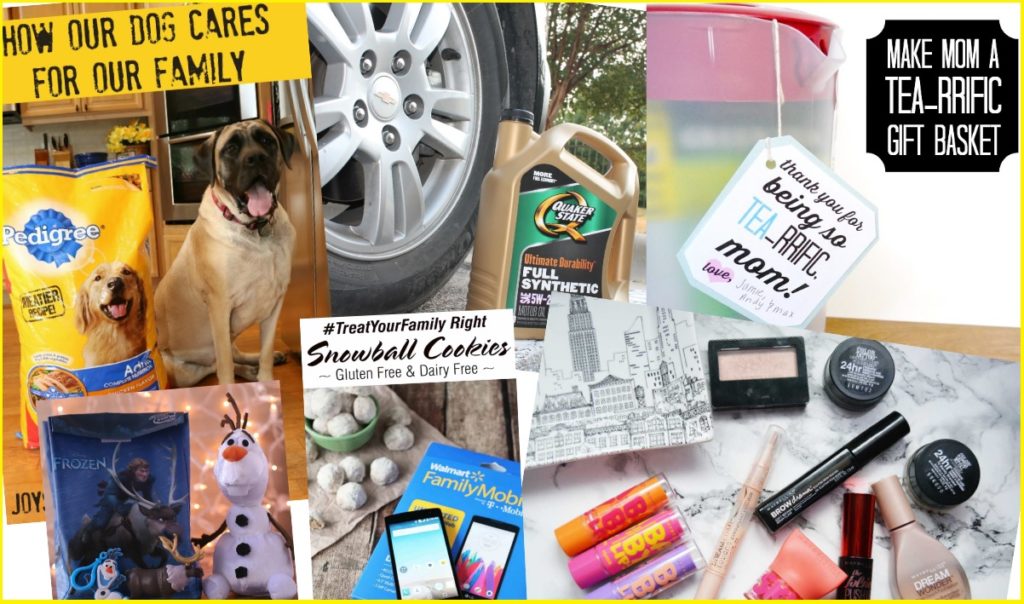Do you recall buying a particular brand of detergent last year because your favorite blogger recommended it? Did you redeem a coupon for rice because a YouTuber gushed about how it helps you “spend quality family time in the kitchen”? Or perhaps you tried a frozen meal brand after seeing a “beautiful plating presentation” on Instagram?
And have you ever bought a “Flirty Apron”??
Product recommendations, coupon suggestions, brand-specific recipes – and those ubiquitous Flirty Aprons – are a staple of couponing blogs and social media lifestyle pages. And now a new study shows just how influential these tastemakers are in getting us to buy the products they’re plugging.
The study was conducted by Collective Bias, one of the companies that connects brands with “influencers”, to encourage their followers to buy products or redeem coupons in exchange for a little piece of the action.
“The influencer marketing industry has boomed over the past few years,” the company explains, “as marketers have searched to cut through the noise to reach shoppers who have become desensitized to traditional media.”
In other words, if you see a TV commercial or a banner ad for a product online, you’re less likely to be motivated to buy than you are if your favorite coupon blogger or social media star recommends it.
Collective Bias examined a dozen “influencer campaigns” it conducted last year with more than 450 influencers. And it found that the campaigns had a measurable effect on where we shop and what we buy.
To “prove the value of influencer marketing, we analyzed the impact of influencer content and its ability to drive coupon redemption rates,” the study reads. In one case, a “national rice brand wanted to drive trial by accelerating redemptions at Walmart.” So Collective Bias “activated influencers to discuss spending quality family time in the kitchen and creating new usage occasions for the brand.”
As a result, the coupon redemption rate tripled, from a historical average of 15%, to 45%. Influencers’ chatty, informal approach “builds an authentic relationship with the consumer, making the process seem less transactional and more enjoyable and inspirational, overall,” Collective Bias explained.
In another case, a “frozen meals brand wanted to drive awareness and trial for their product.” So Collective Bias influencers “brought life to the product through recipes and beautiful plating presentations,” and “naturally incorporated messaging about the coupon offer.”
And the brand ended up seeing a 34% increase in coupon redemptions, “providing definitive proof that influencer campaigns are valuable for driving redemptions and sales.”
In a separate survey conducted last year, Collective Bias found that influencer marketing is even more effective than the good old-fashioned celebrity endorsement. 30% of those surveyed said they’d be more likely to purchase a product endorsed by a non-celebrity blogger than a celebrity. And nearly 60% said they typically consult blogs and social media before going shopping.
“The findings of this report strongly indicate that consumers are less engaged with advertisements and seemingly disingenuous celebrity endorsements,” Collective Bias President Bill Sussman said. So “brand marketers will need to turn to more effective alternatives such as influencer content,” he suggested.
The new study is the fulfillment of a promise to reveal “data-driven connections between the power of consumer recommendation and in-store sales” when Collective Bias was acquired by the coupon processing and analytics company Inmar last year. Both companies hope providing proof that this kind of marketing works, will lead to more of it in the future.
“Smart brands must look beyond more traditional marketing efforts and meet shoppers where they are – which is increasingly on social platforms,” Inmar CEO David Mounts said when announcing the acquisition in November.
Coincidentally, the report was released just a week after the Federal Trade Commission reminded influencers to clearly disclose when they’re being paid to recommend a product. That’s long been FTC policy. But after reviewing Instagram posts from many influencers, the agency recently sent out nearly 100 letters reminding them of the rules, in what it says was the “first time that FTC staff has reached out directly to educate social media influencers themselves.”
So when it comes to influencer marketing, there’s a lot of money to be made, products to be sold – and, apparently, influencers to educate. And however you learn about the deals you take advantage of – hopefully there’s a lot of money to be saved as well.
Image sources: Joy’s Life / Texas Dad Blog / C.R.A.F.T. / A Thing of Beauty / Savory Spin / A Million Moments















The ad-apocalypse gives youtubers and/or bloggers even more motivation to to work with companies directly.
PS: I just wrote this but my comment didn’t go through. Giving it another go but this time removing my blog address to see if that helps.